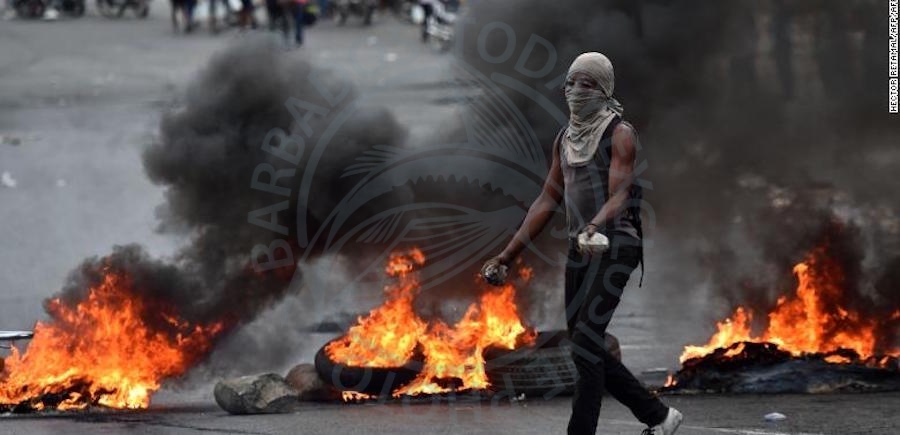If there are two words that would aptly describe the situation in our Caribbean Community neighbour, they would be “It’s complicated”.
Given the perennial social, economic, and environmental challenges faced by this country, it is difficult for the cynics not to regard the French-speaking country as a nation that has been blighted.
A place of unfulfilled expectations, the country which shares the island of Hispaniola with the Spanish-speaking Dominican Republic, is often spoken of in terms of its potential.
People who have visited the island often speak highly of the creative nature of its people, their cultural assets, their visual arts, music, dance and sculptures. The Haitian artwork is often characterised by vivid colours “spatial composition and spontaneity of painting,” said one description.
The landscape of the country, though scarred over hundreds of years by deforestation, still includes majestic mountainous areas and benefits from several natural harbours. Counted among its natural resources are copper, marble, gold, calcium carbonate, and hydropower, Haiti is a Caribbean nation with so many unfulfilled expectations.
It should never be lost on us in the Caribbean that the plight of Haitians is a combination of external collusion to stunt the country’s ability to excel, coupled with internal machinations for political power and control.
We are aware of the destabilising role played by French colonialists who would never treat as equal a slave colony that managed to defeat the French army between 1804 and 1806.
As the world’s first black republic and first independent Caribbean country, the price of freedom came at a “crippling cost” as France
demanded an “independence debt” that was only erased in 1947.
One is left to wonder if CARICOM’s push for reparations from Europe is successful, what would be Haiti’s reparation cost from France.
What is the reality today on the ground for the mostly poor citizens? It is one of economic collapse, governance failure, and security and food crises, the latter of which has resulted in a population that is barely able to feed itself or secure potable water.
Thousands of Haitians are fleeing the conditions and risking their lives on rickety vessels trying to escape to The Bahamas, the United States and even as far as Jamaica.
Is it fair to describe Haiti as a failed state? As much as we are torn with the idea of describing a fellow CARICOM nation and neighbour as a “failed republic”, the facts do not lie. Groups of marauding gun-toting gangs
roam the streets, while people scramble for food and other necessities.
Whether we attribute Haiti’s failures to the joint efforts of Western powers or a combination of external and internal forces, the result has been, undoubtedly, a tortured existence for most ordinary citizens there.
With a population of 11.45 million, it dwarfs even Jamaica with its 2.82 million inhabitants. All this is important as we in the region seek to assist Haiti resolve the political and security crisis that continues to deteriorate by the day.
After years of political instability that dates back to the rule of François Papa Doc Duvalier who was president from 1957 until his death in 1971 when his son Jean-Claude Baby Doc Duvalier took over, Haitians have earnestly sought a democratic leader that looked out for them.
With a high level of distrust among Haitians for the American government, the US has embraced a CARICOM solution that sees interim Prime Minister Ariel Henry resigning and the formation of a Presidential Council of key Haitian constituents to deal with the political and socio-economic situation.
However, it seems even this solution CARICOM chairman and Guyana’s President Dr Irfaan Ali and a group of select regional experts hammered out, and was regarded as the best option on the table to bring about stability, now looks shaky at best.
President Ali described it fittingly as a plan that was not easy to craft. However, he stressed the need for all stakeholders to recognise that it was their duty “to their people to reach a consensus among themselves now”.
We too are convinced that the Haitian people must be as determined to craft a solution for themselves. They must be as determined as they were in 1806 to fight the colonial powers for their freedom. This present fight is for their very survival.




